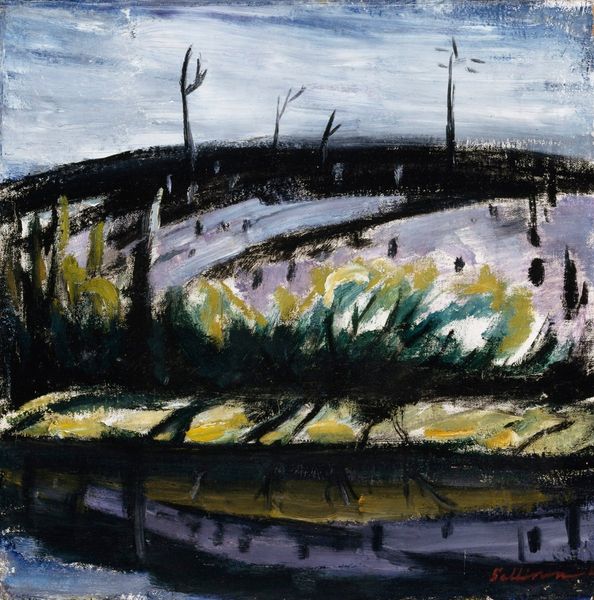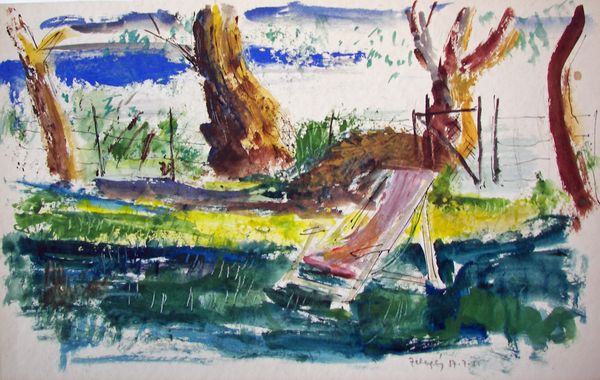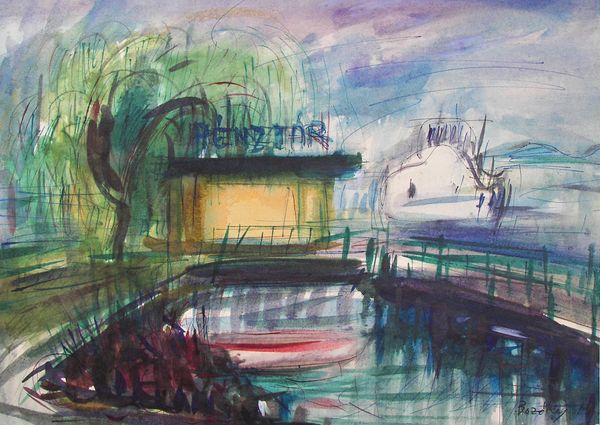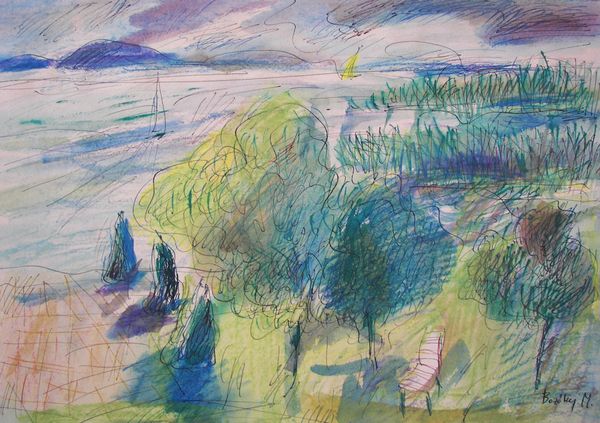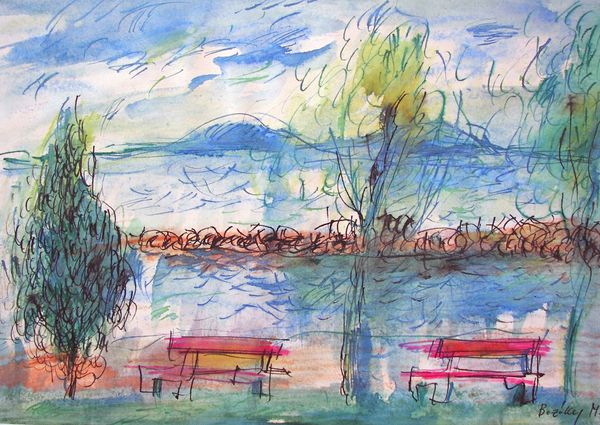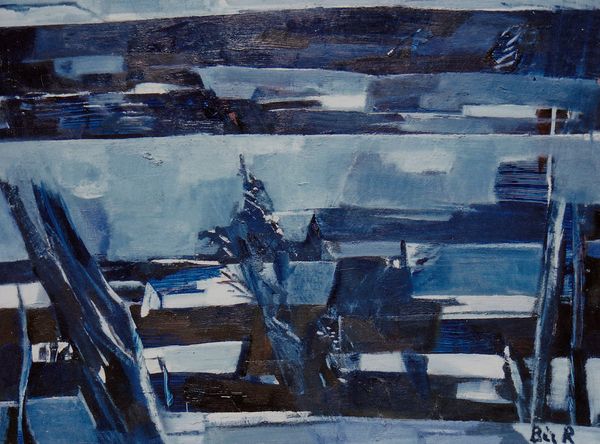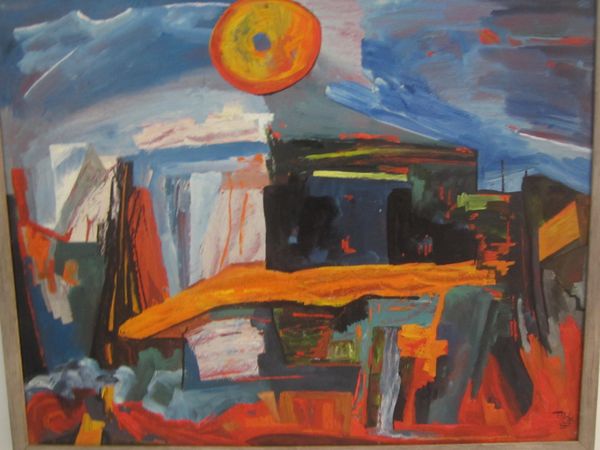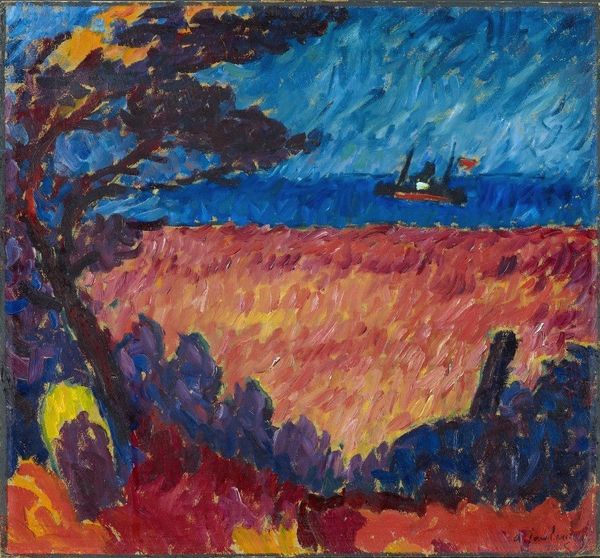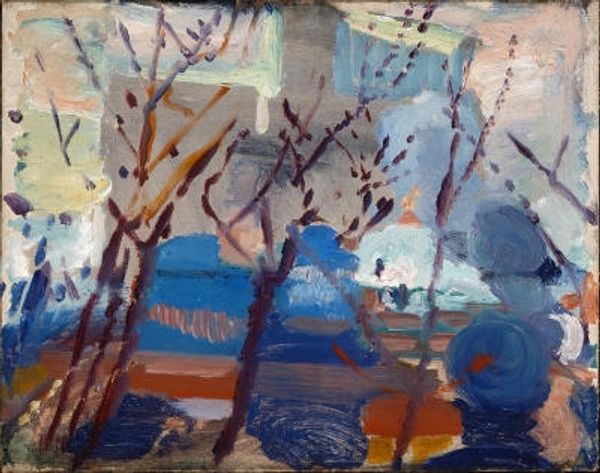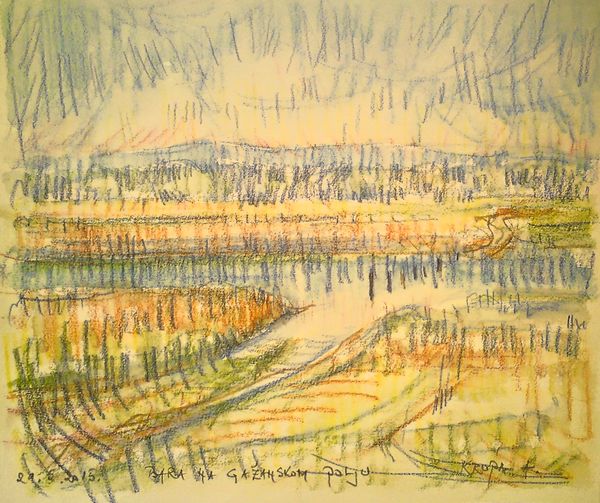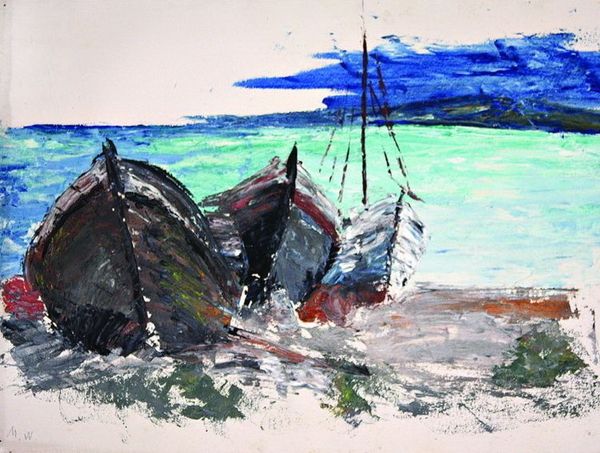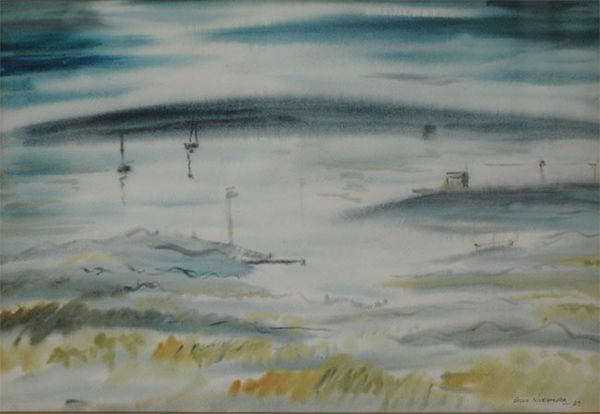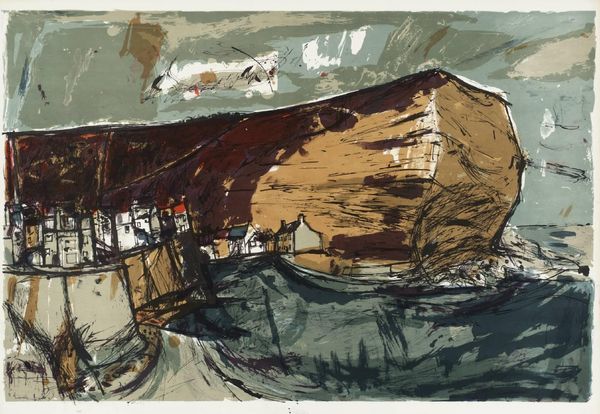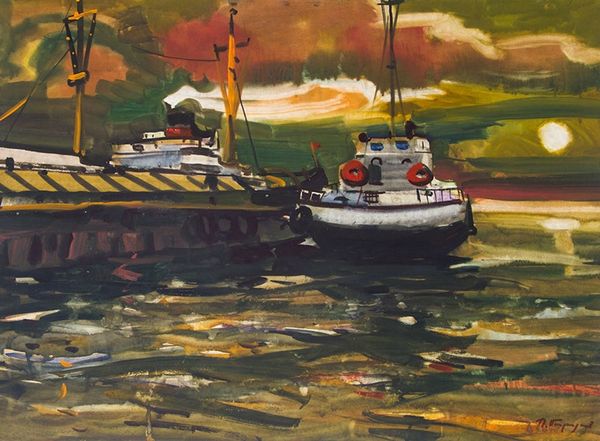
#
abstract expressionism
#
abstract painting
#
impressionist painting style
#
impressionist landscape
#
handmade artwork painting
#
oil painting
#
fluid art
#
acrylic on canvas
#
watercolor
#
expressionist
Copyright: Billy Childish,Fair Use
Editor: This is "John H Amos 2," painted by Billy Childish in 2008, seemingly in oil or acrylic on canvas. It has a rough-hewn quality. What strikes me most is the way he's layered the paint so thickly. What does that texture bring to the work, in your opinion? Curator: Well, consider the physicality of paint itself. Childish isn't just representing a boat; he's forcing us to confront the materiality of the medium. The thick application transforms the canvas into a tactile object, reflecting the labour inherent in artistic production. Editor: That's a good point, the sheer amount of paint used… almost excessive. So, you see the texture as less about depicting a scene and more about the act of painting itself? Curator: Precisely. The "handmade artwork painting," as it’s tagged, challenges the romantic idea of effortless creation. The materiality here, the sheer volume of paint, becomes the content. Think about the cost involved, both material and in terms of physical effort. Who typically had access to such resources, and what did they produce? Editor: I see. It pushes back on notions of art as solely intellectual or spiritual by emphasizing its connection to labor and the physical world. The almost naive style combined with this thick paint feels very deliberate then. Curator: Absolutely. He's questioning established art historical hierarchies. By embracing seemingly "crude" techniques and focusing on process and the inherent qualities of his materials, Childish makes the statement that the means of production *are* the message. How might its seeming resemblance to earlier 'impressionist landscape' paintings be subverting assumptions about production or social class from that era? Editor: I see now. I initially saw a somewhat crude landscape scene but it seems there is social commentary involved. Curator: Exactly. It makes you consider all of those art historical "isms" like expressionism, or fluid art... by literally confronting the material aspects of painting, we must address both historical production methods and the cultural values that underpin them. Editor: Thanks, that's given me a lot to think about!
Comments
No comments
Be the first to comment and join the conversation on the ultimate creative platform.
